#salman is most misunderstood being human
Text
★ BigInterview! Suniel Shetty on his Bollywood journey!
Nov 29, 2020,
Suniel Shetty turns 60 in 2021. But that isn’t what this conversation is about. For someone who has decades of work behind him - action, comedy, drama, romance, every genre that's checked, Suniel embodies humility and grace. A family man with two kids- Ahan and Athiya, one who is set to embark on his Bollywood journey and the other who has already made a name for herself as an actress, Suniel takes a lot of pride in being a successful father and a devoted husband. In an exclusive chat with ETimes, Suniel talks about some of the toughest moments in his career, getting written off and being labelled a ‘non-actor’, his friendship with Salman Khan and staying fit and sexy at 60! Here are excerpts from the chat.
(Excerpt from interview)
You share a very special relationship with Salman. What have you learnt from him?
Give, give, give and keep giving is Salman Khan! He doesn’t talk about the unbelievable amount of work he does. He doesn’t talk about the unbelievable amount of support he gives. Recommending me even when I wasn't working. Recommending each other that oh I can’t do this film, talk to Suniel he will be damn good for it. It is only when you are comfortable in your own space. I always say he’s the most misunderstood human being in this industry, I am not saying this now, I have been saying this for the last 10 years when he was being hit at peak that yeh aisa hai ya vaisa hai but insaan bahot acha hai. Agar yeh poochna hi hai na toh tabloids se kyu pooch rahe ho? Tabloids se kyu pooche? Editors se kyu pooche? Journalists se kyu pooche kyunki kahi na kahi we are not 100 per cent ourselves when it comes to you. There is a put on and a behaviour where we try to show you the good side of us.
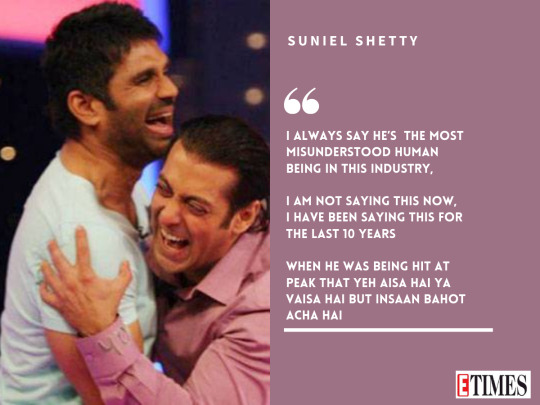
Agar asliyat jaan ni hai aapko industry ke baare mein, agar kitab likhna hai aap pehle ke dressman se poochiye jo van ke andar aate the, pehle ke lightmen se poochiye, dancers, junior artistes se poochiye, dancers se poochiye kyunki woh din bhar hamare ird gird hai kyunki hamari jo cheezein hai hamare moods, hamare whims, hamari fancies they will know about it . Go and look at every actor and see iska boy iske sath kitne saal se hai, kitne assistant directors ko isne encourage ya gaali diya hai tab aapko pata chalega ki asli hero kaun hai aur Salman Khan ke baare mein you can ask anybody that, that is why the word Bhai. It comes with a reason you know. Mithun Da, Jackie Dada, that comes and that is respect which your own industry gives you.
Of course the world picks up and follows and believes in that. But that is why Salman is Bhai, he is called a Bhai. He is far younger than us, I don’t need to, I always call him Salman. But when I call him today, I feel the need to call him that. Ye chamchagiri nahi hai, Salman himself will tell you the kind of relationship he and I share, north pole and south pole. He knows I will run away in 2 minutes and disappear from a party but he knows I am always there for him and vice versa. So, Salman is that boy who has a heart of gold, absolute heart of gold. Some people show it and some people don’t.
1 note
·
View note
Text
BOMBAY by the SEA ....

You may have heard about it, read about it or even said it - “Bombay is not a city. It is an emotion”, but to truly understand this you would have to experience it. Not one to act on irrational notions, I surprised myself when I opted to move to Bombay when I had no reason to. I could have worked out of Madras or Bangalore or Hyderabad but no. I had this urge to live in Bombay, in a small apartment unit as big as a pigeon hole amidst a sea of humanity in absolute chaos.

It might sound like a cliche ; thousands of people from all around India go to Bombay in search of a future, in search of money, fame, glory or glamour but in my case there were no such reasons. I went there just because I felt I belonged there and nowhere else.
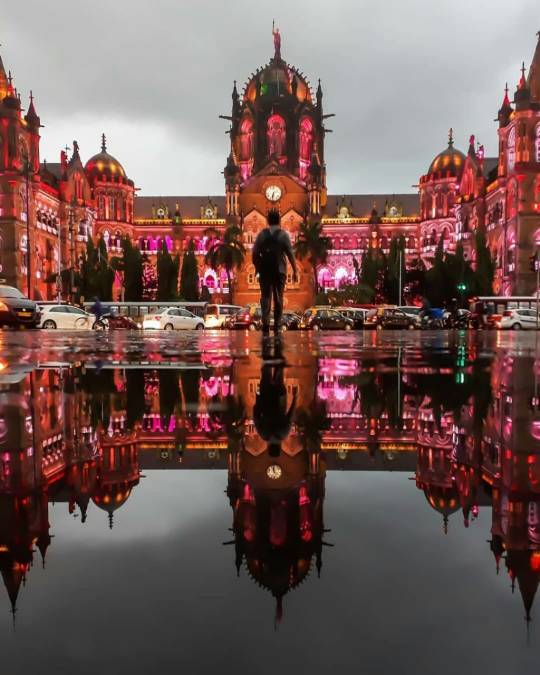
Poetic as it may sound, I definitely didn’t belong in Bombay. A bit late to realize this, I was but an unwelcome guest of this great city, just another run in the mill wannabe to come, try, fail and leave, defeated and dejected. But as Emerson rightly said, “Life is a journey, not a destination”. And in this journey, I can say with no regrets and a straight face, I am glad that my first stop was Bombay.

When I was in Bombay I didn’t have a frame of reference to gauge how humungous the city was. This was probably because until then I was never really part of community where people either pushed others in front of them to get ahead or simply walked over them to get ahead. You see, in Bombay one doesn’t get to side-step the rat race. Everyone here runs the race and there are no shortcuts or at least I didn’t find any. Maybe that is why I couldn’t survive Bombay or maybe no one really survives Bombay and the city always emerges victorious.
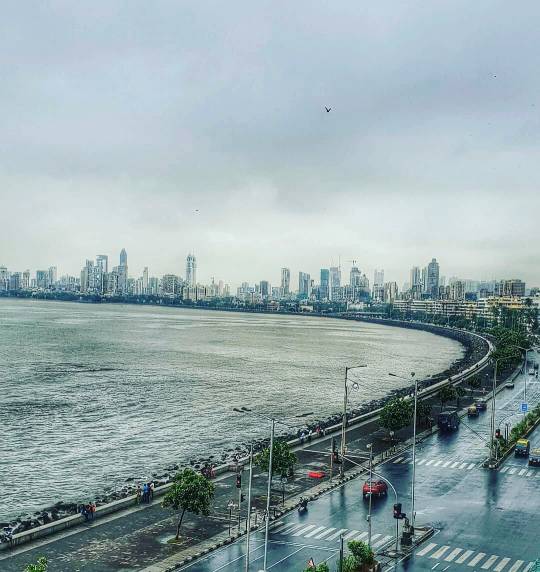
I haven’t found those answers yet but now after spending a couple of years across the Atlantic, now I do know one thing for certain - I miss Bombay. If Emerson had gotten it wrong and if life was not the journey but the destination instead, I know that my destination would always be Bombay.
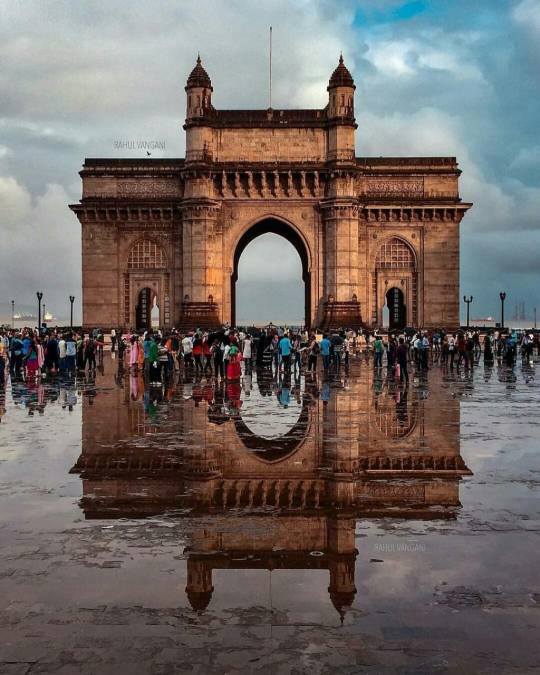
Though I speak so fondly of this city, my scintillating affair with Bombay lasted for just five years. But those few years have given me enough memories for my lifetime. Be it a pleasant surprise such as catching Anurag Kashyap sitting in the very cafe where he spent his struggling years or waiting outside Mannat year after year to just catch a glimpse of Shah Rukh but instead settle for Amitabh Bachchan or Salman Khan instead.
Watching budding stand up comics try their luck with the open mic while more accomplished ones like Atul Khatri and the rest of the East India Comedy fraternity breezed through their sets from IIT Powai to HRC Worli, is something that would make even the most stage-frightened man want to try holding a mic at least once before kicking the bucket.
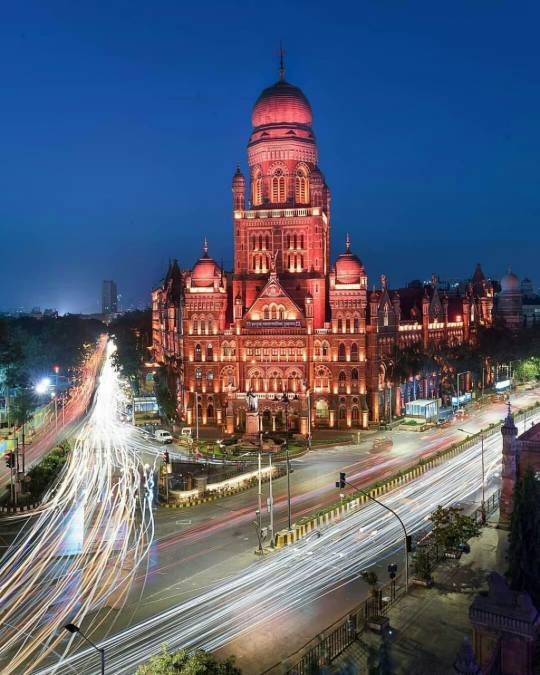
One cannot talk of Bombay without talking about Monsoons, chai-sutta and vada pav. Our love for vada pav is sometimes misunderstood as just being the obvious option for grabbing a quick bite in the hurry to catch the last local, but Chandler would say - this is so not true. I literally survived 5 years on this food because nothing goes hand in hand with the incessant July rains as a vada fav with some chai and a sutta.
Where else in India could someone leave their home at one in the morning to drive all the way across to the sea only to find a queue of patrons waiting to be seated in Mondegar’s or Leopold’s. Where else can one find a line of Mercedeses & BMWs parked in a narrow one way street with their bonnets turned into improvised dining tables with Badde Miyan’s Kheema Pav on them at 3 in the morning. And not to mention the Irani chai from the Dadar-Parsi colony.
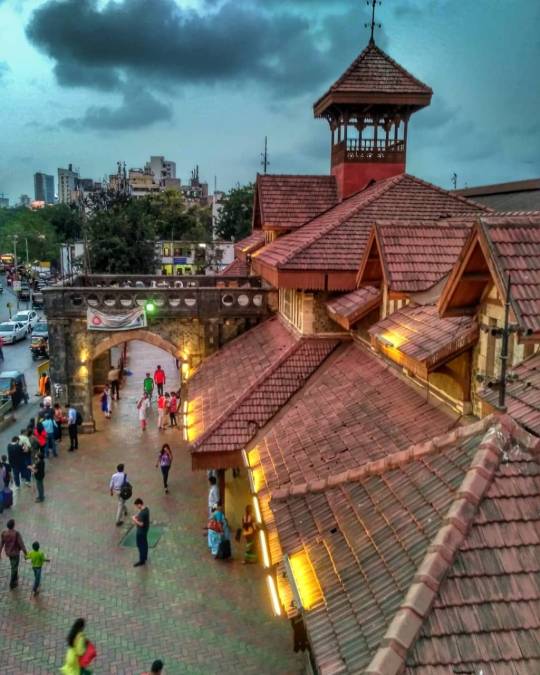
If you are tired of Bombay’s culinary bragging, then let me introduce you to my first experience to High Society. The countless theatres performing artist, the members-only clubs of South Bombay, the Jazz bars with rocks over decades-old scotch, the luxurious espresso bars with the waft of caffeine drifting out into the main roads, the Kala Godha where even the most unimpressed stops by to give a second glance at the silhouette in the photograph stacked perilously at the side of the road for all to view but none to buy.

Here every hustler feels righteous and every fool distraught. Here if you don’t move forward you wont just be left behind, you would be left out. For this very reason every dweller has just one aim : move up the rungs of the society, by hook or crook. In this jam-packed metropolis every man must learn to share space. The richest of the rich live just a few miles afar as the crow flies, from the poorest of the poor and yet this distance of a stone’s throw is the perfect yardstick to measure success. Sometimes even after generations it sometimes seems impossible to bridge this gap while for a few all that it takes to cross this bridge is to be in the right place at the right time.
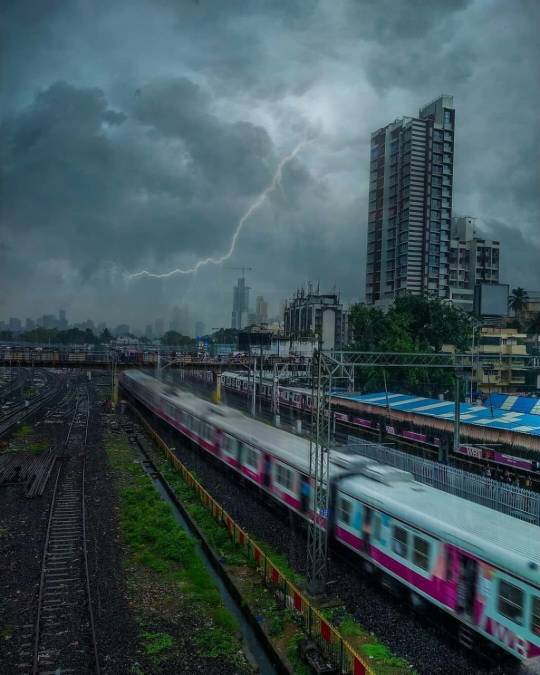
Although I would love nothing more than to say that this right place is Bombay, I know deep down that it is not true. And hence the departure from the city that never sleeps. But not without making the same promise which countless others made but failed to keep - to return one day and to find my way across that bridge, over to the other side where I can feel that I have done Bombay right.

0 notes
Text
[Ramble, Parte Deux]
Eh, bien, continuouns! (From yesterday’s post)
New author mistakes, mostly by men
I’m going to come back to authenticity, but before you hear me list some caveats, just know that if I’ve described your writing style but this is genuinely how you think about the world, or how you sound to your friends, there’s no problem with it at all. The only real problem with the below is how it rings false, fails to hit the mark, if you get me.
I can tell new male authors by how they sound exasperated with everything. They’re so nervous that they’re not an authority on anything that they feel the need to tear everything around them down, and sneer heavily, which they call voice, but really it smacks of the fear and desperation with which it was written. The writing apes our favourite authors: Bret Easton Ellis, Irvine Welsh, Chuck Palahniuk. The sneering is usually combined with a desire to be seen as some sort of cool waster bohemian type, as per our other favourite authors: Bukowski, Bolaño, McCarthy, Carver.
Or there’s the desire to be seen as some sort of neurotic, misunderstood genius, like our gender’s other group of favourite authors: Jonathan Safran Foer, Jonathan Franzen, David Foster Wallace, Charlie Kaufman, Woody Allen. Or some downtrodden salt-of-the-earth type whose sad life gets super sadder, like the work of George Saunders, Louis CK. If you’re an older guy but new writer, you may feel the need to sound incredibly well read, and say things like ‘One thinks of Homer/Ovid’, or, ‘Leave that to the world’s greatest stand-up comic: Kafka’ so it’s all like ‘Ohhhh he’s pure in touch with contemporary culture but has something of the masters to offer us!’ like Salman Rushdie.
Sometimes you see writers championing a particular genre and claiming it’s the one genre we need the most in these times, often, as I’ve done above, quoting a number of authors, their names like buttresses used to prop up a nervous argument that is framed as follows: ‘I don’t know how to prove this or why you would believe me, but I have read a lot.’
Phew! Okay that sounds like a lot of pitfalls to avoid. Sorry if it was tough to read, and it may even sound like my own nervousness is causing me to pull rank and outsneer sneerers. I promise that’s not what I’m doing: see, there is a clear (but ever changing, ever evolving) path to good writing that neatly dodges these pitfalls, and it’s a path only you know the routing of, because it is your path; it is authenticity. You find it, trial and error-like, by falling into the pits of your favourites. This is why you’ll always be your best editor before anyone else: because more than anyone else, you know what you’d say. So you know what to take out!
There’s no shame, not at all. But it’s something to graduate from. I’m not sure I have. I’m probably not as good as I used to think I was, though I’m definitely better than I’ve ever been. When won’t that stop being true for anyone, about anything in their lives? Because using the path-navigation analogy, you’re forever going forwards. And these favourite writers: maybe sometimes they’re pitfalls and other times they’re mountains. Or ramps or something. You can fall into them or you can spring off them to higher destinations.
On early female writer mistakes? Not being well read enough, or demonstrating a predilection for a rubbish author—while at the same time claiming to be inspired by Dostoyevsky or something. But these are demonstrable flaws of either sex, and I think women generally get better at fiction faster because they tend to have been more naturally curious about others even before they came up with the highly megalomaniacal and egotistical idea of harvesting the LIFE from their surroundings for their own benefit and canonisation.
Hah, of course there’s more to writing than that. Growing up, the great thing about fiction is finding yourself, or your observations better articulated, such that you don’t feel alone and have words for feelings. When you’ve done most of your growing, well, I find it too frustrating wading through fiction for someone else to tell me what I’m feeling: I’d rather take a shot at articulating it myself and assume someone else feels the same, or similar enough for it to resonate. It’s surprising that even now there might be a new way of looking at the world, that what could be considered the millionth version of a story that I tell might be unique enough to be needed. But I’m not in control of that. I mention some other author coping strategies later, but one of them is ‘I was telling my own [often with specified genre] stories to my friends and family since I was knee high to my uncle’s walloper.’ I totes wasn’t, by the way. I wasn’t even reading as much as I thought I was, for most of my life. To be fair, Borges didn’t come up in my Dynamic Behaviours of Process Systems or Particle Engineering classes, for example! But feeling out of sorts, underqualified, like you’re playing catch-up, feeling intimidated—it’s just what it feels like to be human sometimes. Other times you’re able to not give a shit but I think you have to do both unfortunately, to stay focused—or something.
One route to authenticity is self-deprecation. I discovered a quote through an interview with John Barth, and a bit of Googling to reveal the origin of it showed that it’s a maxim handed down through many different professions, so I have reason to believe it’s a decent guiding principle: “The secret of success is sincerity. Fake that and you’re in.” If there’s a character you identify with most, make them do something really stupid and embarrassing, or say something ridiculous, or laugh at themselves, or you can take notes on their past that are embarrassing or something like that.
Well, self-deprecation is just one example of making you see the character as human—then they can no longer be this idolised version of yourself—because this is embarrassing and unattractive. It’s like as a kid when you watch cartoons and you think if you were to design a superhero, you wouldn’t give them a weakness. He’d win every fight, but you wouldn’t tune in!
You don’t want to hit on the self-deprecation too hard either, right, which is what’s so grating about the emptier celeb memoirs. ‘I have caviar delivered to my manse so dorkily, durr!!’ Readers both need their writers to implicitly demonstrate some authority and also to be humble about where that authority or knowledge or understanding fails them. Then I suppose that any story is inherently imperfect—which it absolutely is—is not a shame but a necessary feature of it. It might feel like a shame because sometimes you want the last word on a topic, but we’re all part of an endless conversation, “Yes, and”-ing each other until the end of days.
The typical American strategy is to argue so forcefully for one’s own opinion and draw as little possible attention to opposing viewpoints that the reader simply has to subscribe wholly. I guess that’s one strategy—it worked out for Ayn Rand haha—though I don’t think it’s the best. I suppose that’s how you both create comforting bubbles and hide their existence.
You can balance both opposing views such that a story seems fully fleshed but almost ambivalent (Chekhov.) Or you can be so nervous as to spend most of your time building up straw men and tearing them down sneeringly, like young male authors like to do.
And on that note, get over this idea of artist-as-persona. I used to love the idea of being interviewed and didn’t understand why writers seem so uncomfortable when they’re on some panel or whatever: they’re living their dream, right? Until you watch the whole interview and hear that not only are most of them incoherent but they really don’t have any more clue about what’s going on than you do—or if they do, they aren’t as great at articulating as they would’ve liked. If there’s a guiding question for the interview or panel, you’re not really much closer to answering the question at the end than you were at the beginning. The following stances are irritating until you try explaining things yourself and realise they’re unavoidable in a sense:
- ‘Well what I did in my latest book, available in all good bookstores now, is…’
- ‘I need to phone a friend: I’ll put him on speaker. Okay DeLillo’s not answering, so I guess I’d say, something meandering, then quote a passage of Nabokov I think I’m special for understanding.’
- ‘I’m just some crazy kid from [Nowhere] with a [working class slang for typewriter] and a [working class slang for basket] of dreams seein’ where this wild ride takes me!’
- Others
And who’d want to sound like the above? The writer knows not only that they have to shuffle off the stage having gotten out very little from inside of themselves, but that the world will judge them on these random Tuesday morning events for years to come. Boooo!
Anyway it’s hugely arrogant to think that you know who you are and are in full control of how you present yourself to the world, and the discomfort of trying to do this every day, rather than setting yourself in stone and acting the same—much lesser, I’m sure—part, will provide you with the knowledge that no one is free of this central conflict of life, and once you see this, you will write better, with more empathy. Empathy isn’t everything nor is it nothing.
Writing a story should be a discovery process for the writer: they set up a set of initial conditions and carry them to their logical conclusion. That’s what I think good stories are, by the way: thought experiments. This is what I think is key to the notion of why something has literary or lasting merit and something else satisfies only the needs of the fans of its genre. And it explains how the industry of fiction is similar to, say, the scientific community, which producers paper after paper with insight building upon insight in a neverending fugue of information. This being true, you can expect to train for a long time as a writer without producing results, much in the same way a PhD student can self-direct years of failed experiments, finding out way after way that something doesn’t work and hopefully allowing this to guide them closer to a viable solution, a new way to do something, to think about something, a new discovery, whatever it is. It also explains how a writer may at any stage of his or her career create a failed experiment. The worst thing is that only to a writer does a failed experiment sometimes look successful! But the pain and confusion of the writer’s life is not unique to writers; I’d say the writer’s life is less obviously necessary and hence less respected. Or at least, the writer’s pain has a unique flavour—but the scientist’s can be just as acute, just differently so. And again, anything on the spectrum of self-doubting sigher to joy-filled happy-to-be-here-er to productivity-driven automaton to rebellious slacker is acceptable as a coping strategy for this pain. But I suppose in literature the personality more evidently informs the content.
I can say countless books have at least adjusted my perspective and given me a new way to look at a problem, and at most saved my life. It’s way less likely that they can do this if written by an author who is less diligent.
Side note: saving lives is a thing we all do. Since humans can’t live in absolute solitude, who knows who we’re cumulatively keeping alive or how? There are general principles on how to act that can maximise this in most instances, of course. Saving a life is perhaps the most important thing we can do, but I suspect we all do it at the very least once in our lives in a discrete-occasion manner, but in a diffuse continual manner, life is all about its self-propagation, using all of us in a network in order to do it. What I mean is, if you’ve ever saved a life, you’re special and you’re not and you may have to do it again today. The jury is out on you and all of us. Anyone around you could be on the brink right now: maybe they need a kind hello at the bus stop, which has saved plenty; maybe it’s deadly relapse number seven and there’s no hope. I lost my point, but this is interesting to consider. This is why empathy is important and it isn’t: there may well be no need to ache for everyone, but can’t pull up all the drawbridges on your island either. Binary warring forces, everything in constant flux.
More tomorrow :)
0 notes
Text
Part 1: ★Give,give,give and keep giving is Salman Khan.He doesn’t talk about the unbelievable amount of work he does.He doesn’t talk about unbelievable amount of Support He gives.I Always say He’s the Most Misunderstood human being in this industry….-Suniel Shetty
1 note
·
View note